At Memphis' queer prom, balancing tragedy and joy amid 'alarming' Supreme Court implications
- Oops!Something went wrong.Please try again later.
In the pictures from that first prom, the girl stands next to a boy. He’s wearing a white tuxedo with tails. She wears a white dress, her hair in a French twist, and looks at the camera. In those pictures, taken years ago, she does not smile.
“It was so horrible for me,” Trinette Johnson-Williams remembers. She sits at the table in the Memphis home she shares with her wife, Adriane Johnson-Williams, in a navy suit with a smooth burgundy bow tie to complement Adriane’s red everything: lips, glasses frames, dress.
In another hour, they’ll leave to attend prom, as the people they are but never got to dress up and be before.
This is Queer Prom, a pride celebration for LGBTQ+ adults, where outfits sparkle on the light-up dance floor underneath a cluster of crystal-looking chandeliers and disco balls. It’s the first big event like this OUTMemphis has thrown since the pandemic snuffed out safe ways for the community to gather.
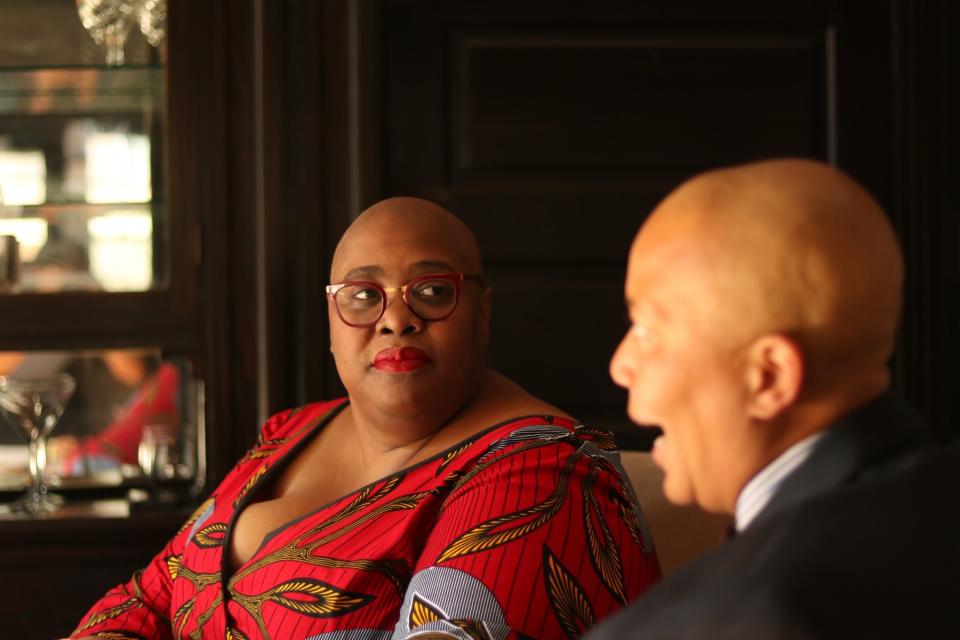
The prom was on Saturday, June 25, 2022, the eve of June 26, a day the Supreme Court has, three separate times, handed down decisions expanding queer rights and protections. Most recently, seven years ago, it was the Obergefell v. Hodges ruling, which allowed Adriane and Trinette to marry in their Memphis home on Halloween that year, the one year anniversary of their first date.
The night before, Trinette was trying to cheer her wife up, make Adriane laugh, by singing goofy songs into a karaoke microphone that arrived in the mail. The right to that very love, the relationship woven on this Friday night with the flowing tears and the silly singing, was at stake, the Supreme Court suggested.
Implications from Dobbs ruling 'alarming' for queer people
Attorney Maureen Truax Holland represented a Memphis couple whose marriage became part of the Obergefell decision, which, on June 26 seven years ago, gave same-sex couples the right to marry.
For Holland, it’s the combination of a concurring opinion by Justice Clarence Thomas, and the legitimate acknowledgement of the opinion by the three dissenting justices, that makes the implications of the Supreme Court’s recent watershed ruling to overturn a person’s right to an abortion also alarming for LGBTQ+ rights.
“These comments are not tea reading, you know, it's not reading the leaves of tea in the bottom of cup. This is real,” Holland said. “These are real statements made by the justices. It is taken very seriously by the dissent. They reference it. And I think that is alarming.”
In a concurring opinion in the Dobbs v. Jackson Women’s Health Organization, Thomas wrote that “in future cases, we should reconsider all of this Court’s substantive due process precedents,” going on to name Obergefell as well as Lawrence v. Texas, a case providing rights to same-sex relationships and Griswold v. Connecticut, a case providing rights to contraception.
Justice Samuel Alito, in the majority opinion, made assurances the LGBTQ+ and contraception rights Thomas referred to were “inherently different” than the right to abortion, and that rights expanded by the cases he listed were not at stake.
“We have stated unequivocally that ‘[n]othing in this opinion should be understood to cast doubt on precedents that do not concern abortion,’” Alito wrote.
The dissenters on the case, though, cautioned anyone to believe the majority opinion’s claims.
“Either the majority does not really believe in its own reasoning. Or if it does, all rights that have no history stretching back to the mid-19th century are insecure,” Justices Stephen Breyer, Elena Kagan and Sonia Sotomayor wrote. “Either the mass of the majority’s opinion is hypocrisy, or additional constitutional rights are under threat. It is one or the other."
“...We cannot understand,” the dissent continued, “how anyone can be confident that today’s opinion will be the last of its kind.”
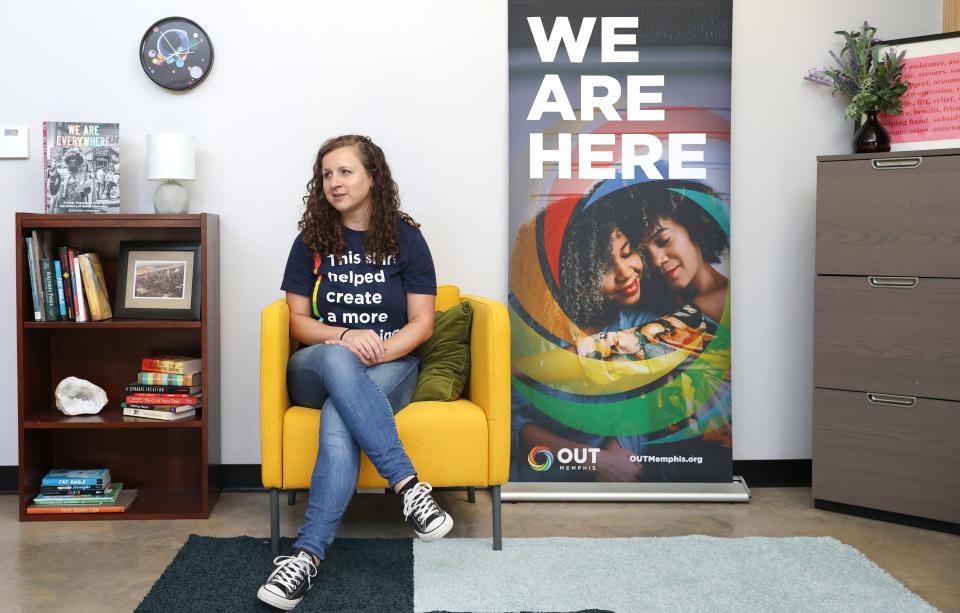
All of this left Molly Quinn, the executive director of OUTMemphis, spending the night before her organization's first queer prom focused on the practical parts of her marriage, celebrated less than two months ago. She and her wife looked over their will.
“It truly feels like nothing is safe, whatsoever,” Quinn said.
She was taking a break from readying the Memphis Botanic Garden for prom. It was about 24 hours after the ruling, which, as the dissent noted, was the first time the Supreme Court rescinded an individual’s constitutional right. It was also, to Quinn, a decision steeped in religious values held by the same sect of Christians who don’t want LGBTQ+ couples to be able to marry.
“And I'm probably naïve, but I felt and have felt like once we had marriage they would never take that away,” Quinn said. “...And certainly I don't feel that way at all anymore.”
What's at stake
When Adriane talks about the Supreme Court decision, she lays out the impact by sweeping her hands wide across her dining room table, stirring the air and sending the fragrance from their home’s summer staple bowl of Georgia peaches wafting through the room.
The corsage she’s always wanted to wear wiggles on her wrist.
"From my perspective, as a part of this couple, there's a lot to be lost for us. A lot,” Adriane said. “Not just the legitimacy of our marriage.”
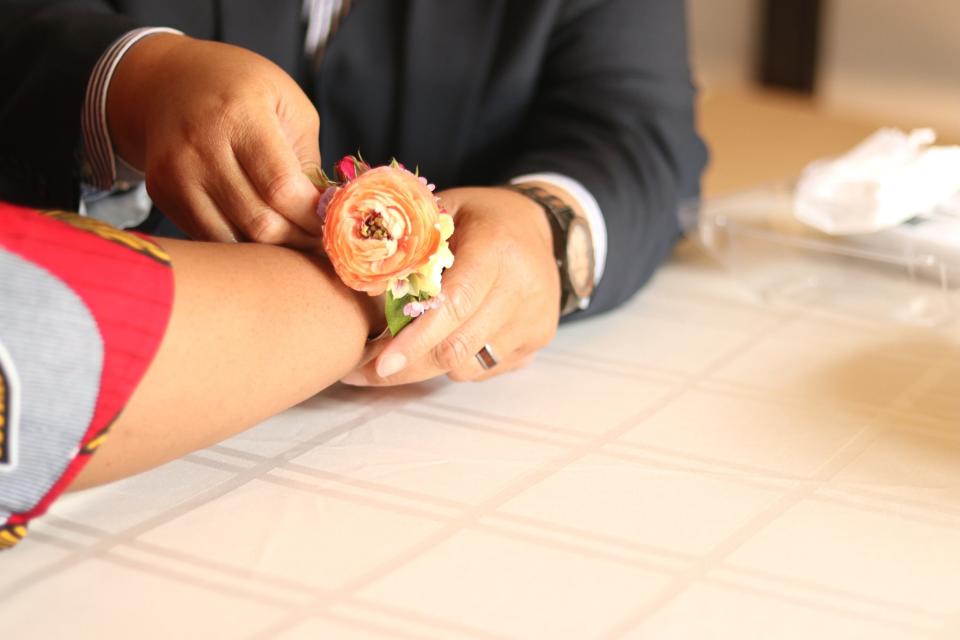
A few years ago, feeling so much was a stake could have sounded hysterical or excessive or conspiratorial, Adriane first acknowledged. When former President Donald Trump was elected, Trinette cried, and immediately thought about how their right to marry could change. Adriane thought then that was far-fetched. But that feeling has waned over the years.
Holland, the lawyer, remembers the jubilance of the Obergefell day.
"I think there was a sort of a sense that, 'We did it! Yay.' There was this landmark decision. It really mattered…It is supposed to count,” Holland said. “And now what we're seeing is that it doesn't count. And that is alarming from a constitutional perspective, from a legal analysis perspective, from a citizenry perspective. And certainly if you're a member of the LGBTQ community.”
Adriane didn’t want to need a piece of paper to be able to be and do what everyone else could be and do. She is unabashed and never separates her different identities out for people. She integrates her wife into regular conversation. But she acknowledges all the rights that come with a state-recognized marriage.
“The legitimacy alone allows me to go to the hospital and not be questioned whether I can be in there with her,” Trinette said.
She knows Adriane, and Adriane’s friends, will play “serious whack-a-mole,” to knock out any attempts to delegitimize their rights.
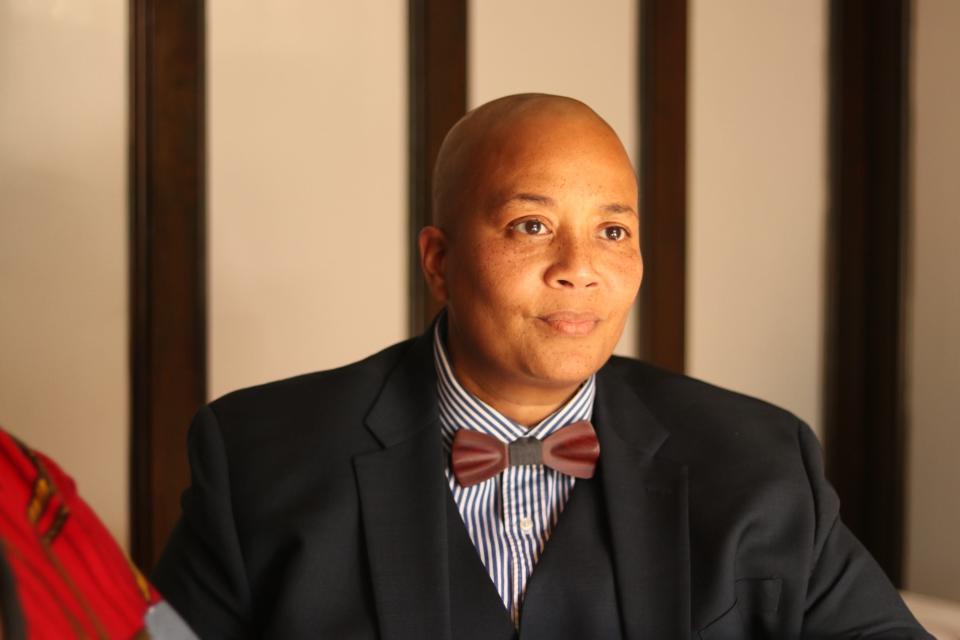
Federal Republican lawmakers have not voiced a clear and collective intention to overturn Obergefell, but some Democrats have voiced concern alongside LGBTQ+ rights activists. One constitutional law expert Dale Carpenter told the Dallas Morning News: "My bottom line is I’m not fearful for my own marriage or marriages of same-sex couples in the immediate future. But ask me again in 50 years."
After an appearance in Memphis on Tuesday, U.S. Sen. Bill Hagerty, R-Tennessee, said concern over the concurring opinion by Thomas is overblown.
"I didn't take his (Clarence Thomas') dissent, the same way that you do. I think he talked about the notion of substantive due process. And he's he used the underpinnings of that as a rationale for cases as those that you just described as questionable and deserving of more scrutiny," Hagerty said. "But I think the court was very clear that this decision, the Dobbs decision, was limited to the issue of abortion."
Shahin Samiei is the Shelby County chair for the Tennessee Equality Project, which means he’s familiar with recent state legislation aimed at LGBTQ+ people and particularly at transgender youth.
He explained a path to keeping LGBTQ+ rights secure that involves voting and advocacy to ensure restrictive LGBTQ+ legislation never passes in the first place and can’t give a foothold to court challenges.
“We have to prevent these bills from advancing into law. Because to reiterate, we can't depend on the courts to protect us and our civil rights anymore,” Samiei said. “This is going to have to come from grassroots direct advocacy, and we're gonna have to stop these bills.”
Samiei, who has a master’s degree in public health, said the impacts of even the presence of restrictive legislation can have a “chilling effect” for LGBTQ+ people seeking health care. LGBTQ youth are at increased risk for negative health outcomes compared to their peers, according to the Centers for Disease Control and Prevention.
Balancing tragedy and joy
One attendee, at least, placed the implications of the Dobbs ruling front-and-center at queer prom, wearing a hand-made shirt criticizing the justices underneath a jacket that said in rainbow colored letters on the back: “We are next.”
"The joy that we deserve, and that we occupy, it is not impenetrable to the tragedies that are happening. And vice versa. We can live in this post-Roe, Day One, and still come together as a queer community, despite what it means…directly and indirectly,” Quinn said, the morning of the prom.
“It's certainly hard. Certainly had moments of wondering if a giant party was the thing to do the next day,” Quinn said. “But I think it is. I think it is the right thing.”
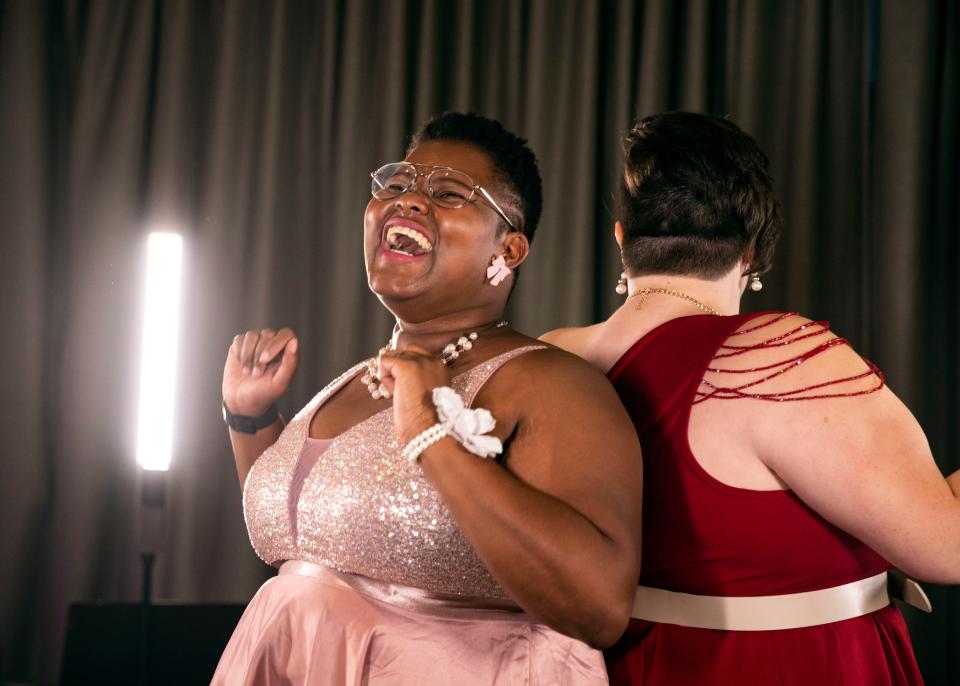
The day before, a Supreme Court justice suggested their right to marry should be reconsidered. The next day would mark seven years since the same court recognized that right. In between, they danced.
Trinette and Adriane sat at a table in the VIP section of the prom — which is no surprise to anyone who knows Adriane, Trinette had said back at their home. They laughed and talked and ate and fanned off the heat and shoulder shimmied throughout the night, as others meandered outside or to the photo booth or underneath the disco ball and chandeliers on the dance floor.
At this prom, Trinette smiled.
Commercial Appeal reporter Lucas Finton contributed.
Laura Testino covers education and children's issues for the Commercial Appeal. Reach her at laura.testino@commercialappeal.com or 901-512-3763. Find her on Twitter: @LDTestino
This article originally appeared on Memphis Commercial Appeal: At Memphis' queer prom, Supreme Court implications cast shadow
